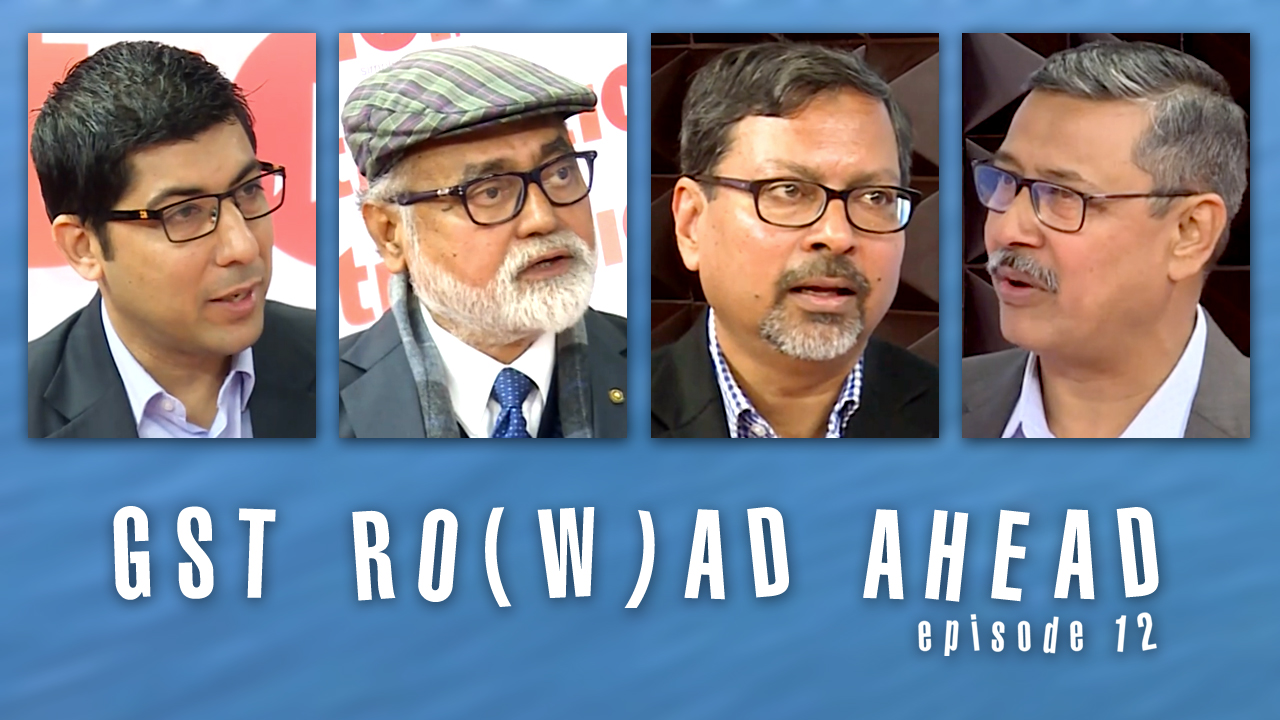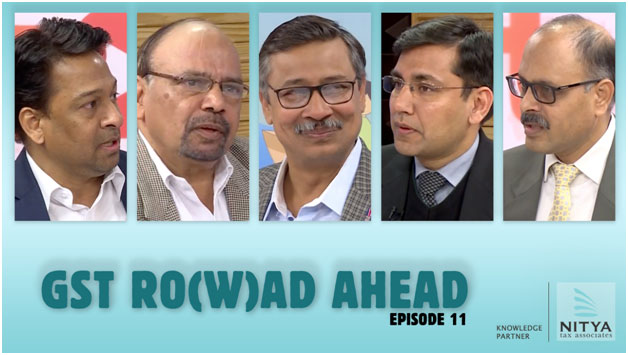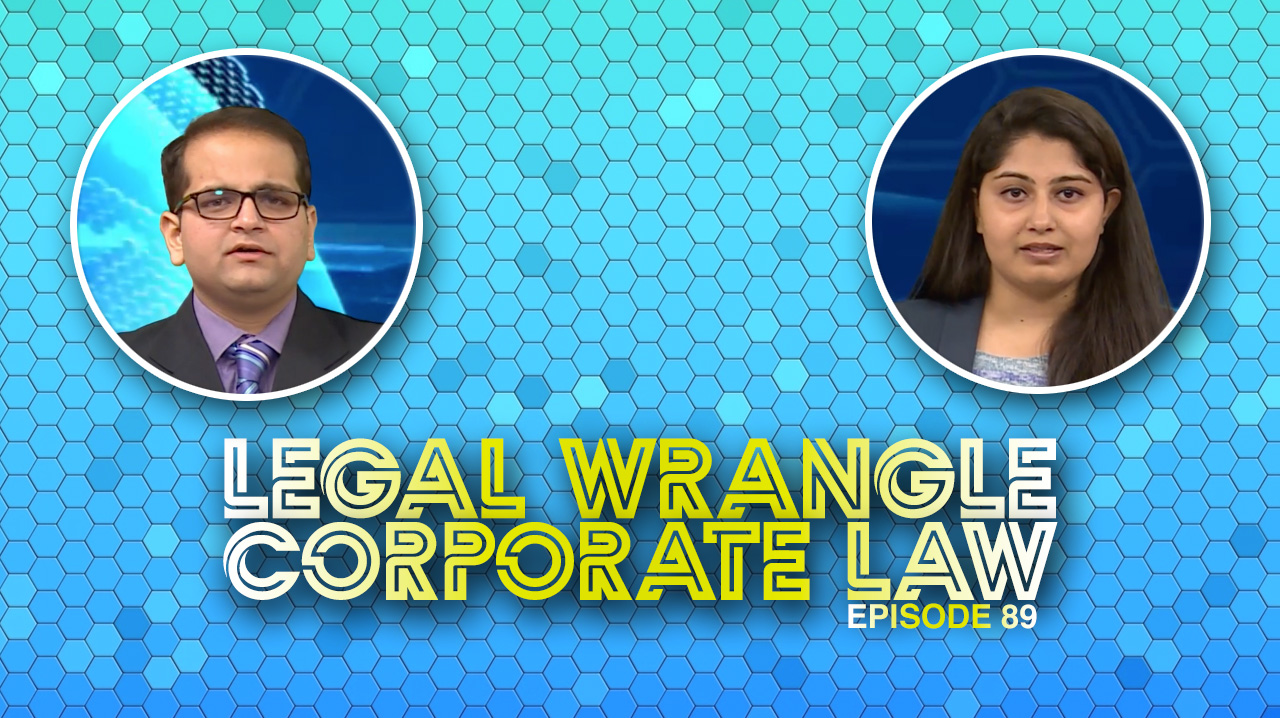SERVICE TAX
2019-TIOL-146-CESTAT-MUM + Case Story
CST Vs Traffic Manager, Mumbai Port Trust
ST - Revenue is not permitted to take a new stand for deciding the appeal in its favour - Compensation received for permitting ONGC to lay pipelines within the Port Trust limit on land and sea - SCN issued seeking confirmation of service tax demand under Port Services, but adjudicating authority dropping the same - Revenue through present appeal before CESTAT has raised a new ground regarding classification of service under the taxable entry of Renting of Immovable Property Service - Since classification under such service was never the subject matter of dispute before the lower authority and no specific show cause notice was issued to the respondent, alleging classification under such service, the Revenue is not permitted to take such new stand for deciding the appeal in its favour - Revenue appeal dismissed: CESTAT [para 4, 5]
- Appeal dismissed : MUMBAI CESTAT
2019-TIOL-139-CESTAT-BANG
Adarsh Realty And Hotel Pvt Ltd Vs CCT
ST - The assessee is engaged in providing various club facilities to its members & is registered under 'Club & Fitness Service' - During the period of dispute, the Revenue received intelligence to the effect that the assessee was not paying service tax on various activities - Duty demands were raised with interest & imposition of penalty u/s 76, 77 & 78 of the Finance Act 1994.
Held - The assessee-company is engaged in operating & managing a club - Members of this club are customers of the assessee - The members of a private company are different from customers - Hence they do not fall within definition of Club or Association Membership Service - The Board Letter MD(DR) F No. B1/6/2005-TRU dated 27.7.2005 clarifies that service provided or to be provided to its Members by any Club or Association in relation to provision of services, facilities or advantages for a subscription or any other amount are taxable - Here the service recipients are independent persons and they are only the customers who avail services of the assessee independently, under some scheme formulated by the assessee - Moreover, the assessee is not paying service tax on the entrance fee but on the other services provided - Hence the assessee's activites do not fall under 'Club or Association' service - Hence the demands raised merit being set aside: CESTAT (Para 2-2.3,6,6.1)
- Assessee's appeal allowed: BANGALORE CESTAT
2019-TIOL-138-CESTAT-BANG
Bangalore Club Vs CCE
ST - The assessee is an Association of Persons, providing Club facilities & registered under service of health club & fitness center - The DGCEI gathered intelligence to the effect that the assessee was not paying service tax on club and association membership services rendered - Examination of relevant material revealed that the assessee was providing services to members, guests & dependents - The services included canteen, bar, swimming pool, library, table tennis, gymnasium, tennis, squash, billiards, card-room, chambers (rooms) and banquet facility - Based on statements of certain employees, duty demand was raised under 'Club or Association Membership Service' - Demand for interest were raised & penalties were imposed too.
Held - The issue of entrance fees paid for obtaining membership of a club, is no longer res integra - The assessee also claimed to have paid service tax on all these facilities - Though the assessee claimed refund of service tax paid on these facilities to its members on the same principle of mutuality of interest - It is seen that an identical issue was resolved in the case of Century Club Vs. CCE&CST, Bangalore - Considering the decision laid down in that case, as far as service tax on subscription/membership fee is concerned, the issue is settled in favor of the assessee - Regarding the other services provided by the club, where it is charging service tax from its members & is paying the same, the assessee is liable to pay service tax except upon membership fee service: CESTAT (Para 2.1,2.2,6,7)
- Assessee's appeal partly allowed: BANGALORE CESTAT
2019-TIOL-137-CESTAT-DEL
Ansal Institute Of Technology Vs CST
ST - The assessee is engaged in providing different degree courses, recognized by law - The assessee also provided diploma courses under an agreement with a foreign university, wherein students opting for these courses could seek admission in the foreign university - However, these courses do not result into a degree recognized by law in India - The Revenue sought to tax such service under heading Commercial coaching or training services.
Held - The assessee is an institute which offers certificates, degree or diploma on educational qualifications recognized by law as in force during the relevant time & so were not a commercial training or coaching centre, as per Sections 65(27) of the Finance Act 1994 - Hence the assessee is not liable to pay tax on the activities of educating for diploma courses enabling the students to secure admissions in the foreign university - Hence the duty demand and the penalties are set aside, with no opinion expressed on the issue of limitation: CESTAT (Para 1,3,4,11)
- Assessee's appeal allowed: DELHI CESTAT
2019-TIOL-136-CESTAT-DEL
Avinash Builders Vs CCE & ST
ST - The assessee is engaged in constructing residential units on own land - It entered into an agreement to sell with prospective buyers - When payments are made as per agreed schedule & upon completion of construction, the assessee transfers the residential apartments to the buyers by means of a registered sale deed - Upon Departmental audit, SCN was issued alleging that the assessee's activities classified as 'Works Contract Service' (WCS) - Hence duty demand was raised with interest & imposition of penalties.
Held - Perusal of the agreement to sell shows that the assessee is required to sell the completely constructed flat, after receipt of payment as per the agreed schedule - The construction of a complex is a service & construction of a new residential complex or a part thereof is one of the activities specified under WCS - The assessee carried out design, planning, development of their own land and carried out the construction and transferred the completed flats to the buyers - This does not merit classification under WCS - It will be covered under WCS only if the residential complex is constructed on land owned by someone else - Hence for the period upto July 01, 2010, the activity of the assessee is covered under Construction of Complex Service & so is not taxable - For the period from July 01, 2010 to March 2011, the assessee claimed to have paid tax for period w.e.f. July 01, 2010 after availing applicable abatements - The adjudicating authority is directed to verify such claim - Hence the demand for this period from July 01, 2010 to March 2011 is set aside: CESTAT (Para 2,10,12,13)
- Assessee's appeal partly allowed: DELHI CESTAT
CENTRAL EXCISE
2019-TIOL-135-CESTAT-DEL
Surya Mahal Restro Plex Pvt Ltd Vs CCE & ST
CX - Appellant is engaged in running a Restaurant Business and is serving Variety of dishes from Traditional Indian Thali to desserts for walk in clientele - Appellant is also preparing and serving bakery products, pastry, Cakes and Biscuits, which as per their bonafide belief are exempted under notification No. 12/2012-CX, which exempts item prepared at Restaurant and Hotels specified under Item No. 12 and 13, which attract nil rate of duty and are specified under Chapters 15, 16-19 of CETA - SCN issued alleging that the products under Chapter 18 and 19 were manufactured and clandestinely removed during the period June, 2008 to February 2013 on which Central Excise duty was not paid nor registration was taken, hence demand was raised involving the extended period of limitation, and SSI benefit was also sought to be denied - Adjudicating authority confirming demand to the tune of Rs. 19,27,852/- towards Pastry, Biscuits, Chocolate for the period June, 2008 to 2013, holding the same to be marketable & thus excisable while extending SSI benefits - appeal before CESTAT.
Held: Department has simply alleged evasion, suppression, without bringing on record any contumacious conduct, or evidence - When it is an admitted fact that the appellant was duly registered with Commercial taxes department and has neither charged nor calculated any excise duty, recorded the turnover in balance sheets, books of accounts, maintained vouchers, menu card, bills etc., invocation of extended period on the ground of alleged evasion and suppression of facts is not tenable - demand for the extended period alongwith penalty needs to be set aside - insofar as notification 12/2012-CX is conerned, products of Chapter Heading 16 to 19 and 15 are exempted, if the same are prepared in the Hotel and Restaurant, whether consumed at the place or not, however, it excludes items under Chapter - 1905, which are related to bread, pastry, cakes and biscuits, leaving behind certain items under the said tariff - Therefore, the demand to the extent of items under Chapter heading cake and pastry for the normal period of limitation, from the relevant date is held to be chargeable - appeal is allowed in part with consequential benefits: CESTAT [para 7, 8]
- Appeal partly allowed: DELHI CESTAT
2019-TIOL-134-CESTAT-AHM
Sterling Enterprise Vs CCE & ST
CX - Appellant, a 100% EOU, cleared Turning scrap and slag in the DTA by availing benefit of notification 23/2003-CE and discharging duty @16.32% - It was pointed out by the CERA that while calculating the duty at the rate of 16.32%, the appellant were required to revise the assessable value by including the Basic Customs Duty of 10% in the value - appellant paid differential duty but later claimed refund which was rejected and, therefore, they are in appeal before the Tribunal.
Held: Impugned order does not specifically state as to why the value of Basic Customs Duty needs to be included in the assessable value - Notification No. 23/2003-CE prescribes exemption from duty in excess to amount of 50% of the duty leviable u/s 3 of the CEA, 1944 and also mandates that duty payable shall not be less than the duty of excise leviable on like goods produced or manufactured outside the EOU - it is obvious that for the purpose of comparison in terms of said proviso, the duty leviability on like goods produced or manufactured outside EOU should be considered - In these circumstances, Section 14 of Customs Act, 1962 or proviso to Section 3 of CEA, 1944 have no relevance whatsoever, therefore, there is no need to include the element of Basic Customs Duty in the assessable value for the purpose of arriving at the value of similar goods manufactured outside EOU - no merit in the impugned order, however, the issue of unjust enrichment has not been looked into - impugned order set aside and matter remanded to the original authority: CESTAT [para 5 to 8]
- Matter remanded: AHMEDABAD CESTAT
2019-TIOL-133-CESTAT-AHM
Urmin Products Pvt Ltd Vs CCE
CX - 'Bilas' Pan Sughandh, whether classifiable under tariff heading 2008 9999
Held : Product is manufactured out of the following ingredients viz. Semar Musra, Amla, Bel pulp, Mulethi, Mixed Spices, Natural and artificial flavour and flavouring substances, saccharin sodium sugar and menthol - ingredients are cleaned, grinded, blended and then packed and no other process is adopted - This product is used to give flavour and taste to the pan - Appellant sells these goods in the name of 'Bilas' pan sugandh - on the packing of the product also, the appellant are declaring as pan flavour material - It is settled law that classification of goods is based more on how the product is known in trade parlance than on the basis of its ingredients - Product is sold and purchased with the clear description as Pan Flavour Material -'Bilas' Pan Sughandh manufactured by the appellant is, therefore, correctly classifiable as Churan for Pan under tariff heading 2106 9070 - Penalty u/r 25 is subject to section 11AC of CEA, 1944 - since there is no charge of suppression or fraud or mis-declaration, penalty u/r 25 can also not be imposed - Moreover, in the present case, issue involved is interpretation of classification of goods, for this reason also penalty is not imposable - impugned orders are modified to the effect that the demand of duty and classification ordered is upheld but penalty is dropped: CESTAT [para 4 to 7]
- Appeals partly allowed: AHMEDABAD CESTAT
CUSTOMS
2019-TIOL-132-CESTAT-MAD
Asia Power Projects Ltd Vs CC
Cus - It is the functionality and utility of the equipments which would qualify for inclusion as 'capital goods' for the purpose of para 9.12 of the FTP, or otherwise - Nothing has been brought on record to prove that "hand tools" are not equipment and are not required for manufacture or production either directly or indirectly of goods or for rendering services - impugned hand tools will very much come within the scope of "capital goods" for the purpose of para 9.12 of the policy and will then not become restricted for import in terms of para 2.17 of the FTP - Tools imported will be squarely covered under the definition of "capital goods" and hence do not require a specific licence for their import – Impugned order set aside and appeal allowed with consequential benefits: CESTAT [para 5.4, 6]
- Appeal allowed: CHENNAI CESTAT







ADAHEAD_Episode 10.jpg)

